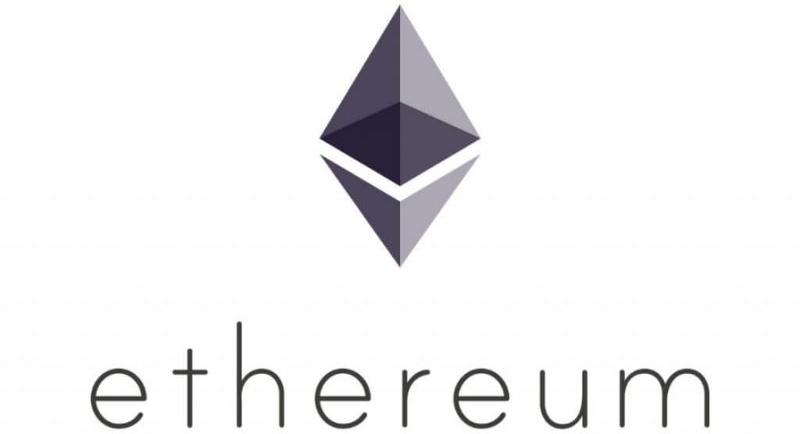The Ethereum vs Solana debate has become quite a prominent one, with Solana’s proof-of-history (PoH) consensus mechanism presenting a serious challenge to the scalability difficulties of the Ethereum network. This guide will look in more detail at both cryptos, comparing the risk, opportunities and key considerations for traders. We have also provided a list of the top brokers offering Etherum vs Solana trading below.
What Is Ethereum?
Ethereum is a decentralised network and blockchain, much like Bitcoin. It was released in July 2015 by Vitalik Buterin and Joseph Lubin, amongst others, and has its own cryptocurrency token, Ether (ETH). In terms of market value, only Bitcoin is larger than ETH, which is important to note when considering the benefits of Ethereum vs Solana.
Ethereum has become hugely popular in recent years because it has features that Bitcoin does not. Bitcoin is mainly a payment network, whereas Ethereum also runs decentralised applications (dapps) using smart contracts. However, going back to Ethereum vs Solana, Solana now also has an extensive range of dapps.
Cryptocurrencies like ETH are popular with traders as they are volatile and influenced by factors that traditional currencies are not.
Additionally, traders can speculate on the price movement of ETH without actually owning the crypto through CFDs and spread betting, which are offered by a range of brokers like CMC Markets.
With regards to Ethereum vs Solana, traders may find it easier to trade ETH given its prominence in the crypto market.
What Is Solana?
Solana, like Ethereum, is a blockchain network based on decentralisation.
Solana was launched in March 2020 (founded by Anatoly Yakovenko) and its cryptocurrency, SOL, is among the top ten by market cap.
This has increased focus on the Ethereum vs Solana debate, as can be seen on social media like Reddit and Medium.
The platform and its cryptocurrency have seen fast growth, mainly because its consensus mechanism (PoH) has undercut other platforms in terms of transaction times and fees.
Having said that, Ethereum remains a dominant player in the DeFi market.
SOL can be traded in the same way as ETH, though traders can also stake any spare or inactive SOL funds, essentially earning passive income through interest.
This is an important differentiation to note for Ethereum vs Solana.
Ethereum Vs Solana Similarities
Trading
When considering Ethereum vs Solana, be aware that both ETH and SOL can usually be traded on the main crypto centralised exchanges.
Decentralised exchanges provide traders with complete control over their funds, while centralised exchanges require a third-party custodian to hold their funds in a custodial wallet. Despite the fact that centralised exchanges may be more user-friendly and provide better educational materials, decentralised exchanges do not require users to create an account, allowing for faster trading and greater anonymity. When deciding between Ethereum and Solana, both of which can be traded as CFDs and through spread betting with leverage, it is important to remember that both currencies are volatile, making leverage a high-risk strategy. Traders should begin by trading in the spot market, where exchanges allow them to go long or short on an asset. Finally, storing Ethereum or Solana requires the use of a crypto wallet.
There are various types of wallets available to traders, depending on their preference. For instance, there are ‘hot’ wallets that are connected to the internet for increased convenience, but are more vulnerable to hackers. On the other hand, ‘cold’ wallets are not connected to the internet and are recommended for funds that traders do not anticipate using for a long time.
Wallets for Ethereum and Solana blockchains share common themes, such as a public key for receiving money and a private key for accessing funds. The right wallet depends on the trader’s experience with crypto, the amount of funds they are depositing, their intended use of the funds, and other factors. Always research the different wallets available when choosing which crypto to trade.
Regulation
Although regulators and governments have become more interested in cryptocurrency in recent years, the market still lacks the regulation imposed on traditional money markets. In the UK, cryptoassets are generally only regulated for money laundering purposes, and traders should be aware that they are unlikely to have access to the Financial Ombudsman Service or the Financial Services Compensation Scheme. Those considering Ethereum versus Solana should be aware of the risks involved.
Ethereum Vs Solana Differences
Consensus Mechanism
Proof-of-work (PoW) is the current consensus mechanism for Ethereum.
This is where miners complete complex mathematical puzzles before the solution is then verified by other miners. Transactions are then added to the blockchain ecosystem and the miner that solves the puzzle receives a reward in the form of ETH. This process maintains the security and integrity of the platform by reducing the risk of fraudulent transactions being added to the blockchain. Whether it’s Ethereum vs Solana, Polkadot, Cardano or Bitcoin, all these blockchain networks need a consensus mechanism to verify the legitimacy of new transactions and maintain the security of the system.
Ethereum will soon be moving to a different consensus mechanism, proof-of-stake (PoS). This method is becoming much more popular as it uses significantly less energy and addresses some of the environmental concerns some users have when considering Ethereum vs Solana. Instead of miners competing to solve mathematical puzzles, a particular ‘validator’ is chosen to forge each block. To be chosen, participants must stake some crypto, with the more staked the more likely you are to be chosen.
Solana has built on the PoS consensus mechanism and pioneered a concept called proof of history (PoH), which can process transactions and add them to the blockchain must more quickly. When considering Ethereum vs Solana, Solana can process more than 50,000 transactions per second (TPS), whereas Ethereum can only do around 15.
Speed
Transaction times are usually much faster on the Solana blockchain in comparison to Ethereum’s, a significant differentiation when weighing up Ethereum vs Solana.
The former is a crowded network and its reliance on individual miners processing transactions slows the system down. Solana, on the other hand, adopts a more automated consensus mechanism through PoH. The quicker the transaction time, the better for crypto traders, as they can respond more quickly to price movements.
Distribution
ETH was initially distributed in an Initial Coin Offering (ICO). Unlike Bitcoin, there is no maximum supply for ETH, though its annual supply is limited to 18 million ETH.
When the Solana network launched, it had an initial total supply of 500 million SOL, though this has now reduced by around 11 million SOL. Tokenomics and the supply of crypto are important when considering Ethereum vs Solana.
Price & Market Cap
ETH has a much higher market cap at over $400 billion, compared to SOL’s $40 billion. Both are sizeable but ETH is still in a dominant position. Whether SOL can close this gap will depend, in part, on the success of the PoH consensus mechanism and the reaction of those closely following Ethereum vs Solana.
In terms of the respective cryptos of Ethereum vs Solana, ETH’s higher market cap is reflected in the price of ETH, which sits around $3,500, compared to SOL’s $150. Cryptocurrencies with higher markets capitalisations are usually favoured by more risk-averse traders, although all cryptos are volatile to some degree, which traders can see through an online chart showing the change in the value of a particular crypto over time.
It is also worth noting that the transition of Ethereum from PoW to PoS may cause the price of ETH to appreciate because of the much lesser environmental impact of PoS models.
This may create greater opportunities for those trading Ethereum vs Solana.
Transaction Costs
In many ways, Ethereum has become a victim of its own success. Attracting more users onto its network has created bottlenecks and a crowded platform. This has caused transaction costs (also known as gas fees) to increase as miners prioritise those who are willing to pay the most. Ethereum 2.0 will go some way to addressing these issues by adopting the PoS consensus mechanism but, turning to Ethereum vs Solana, SOL’s PoH is still likely to be superior in terms of transaction times and fees.
Pros Of Ethereum For Traders
- Despite competitors like Solana, Ethereum is still considered a leader in the DeFi and the NFT markets
- Ethereum 2.0 and the transition to PoS is likely to improve transaction times and reduce transaction costs
- ETH has a significantly higher market cap than SOL, which can mean lower volatility, though all cryptos are quite volatile
Pros Of Solana For Traders
- Opportunities to earn yield through staking
- Quicker transaction times and lower fees is a strong selling point for Solana (vs Ethereum)
- SOL has seen fast growth and the blockchain could take a dominant position in the DeFi industry in the future
Security
In July 2016, the Ethereum blockchain was hacked, resulting in $50 million of funds being stolen. This led to a split of Ethereum Classic (ETC) and Ethereum.
As with all networks, much of the talk around Ethereum vs Solana concerns security and the integrity of the platforms.
However, Solana has not avoided negative publicity; in September 2021, it suffered a denial-of-service (DoS) attack which resulted in the price of SOL plunging.
Accepted Countries
Cryptocurrencies like Ethereum vs Solana can be traded from around the world, although some countries have imposed restrictions or made the use of cryptocurrencies illegal. Traders deciding on Ethereum vs Solana should check whether any restrictions apply in their country.
Ethereum Vs Solana Verdict
Talk of new rivals to the Ethereum network is not particularly new. However, Solana has pioneered a genuinely innovative concept, PoH, which, despite its youth, has been seen to produce much faster transaction times and lower fees. The true success of PoH could be a game-changer in the Ethereum vs Solana debate. SOL is certainly looking attractive to investors, though Ethereum is still considered the dominant player in the DeFi space and ETH has seen strong gains of its own.
FAQs
What Is Ethereum 2.0?
Ethereum 2.0 is an upgrade to the Ethereum network that is taking place in several phases over 2021 and 2022. The objective of the upgrade is to improve speed and lower fees on the network by transitioning to a proof-of-stake model and it could redefine the Ethereum vs Solana debate.
Cryptos can also be very volatile as they are highly speculative. This creates opportunities for traders, though all traders should be aware of the risks when investing in cryptos and debating Ethereum vs Solana.
What Is Blockchain Technology?
Blockchain technology is a type of database where all transactions are chronologically recorded and publicly available, with all users needing to agree before new blocks (data) is added through a consensus mechanism. Whether it’s Ethereum vs Solana or Polkadot vs Bitcoin, blockchain technology and consensus models are key considerations.
What Are Proof Of Work And Proof Of Stake?
Proof-of-work is the traditional blockchain consensus mechanism, which involves miners solving mathematical puzzles to add new blocks and earn rewards. Proof-of-stake is where a particular validator is chosen to forge the new block using randomisation, rather than miners competing against each other. It’s a key differentiation when looking at Ethereum vs Solana.
Why Does Solana Have Fast Transaction Times?
The principal reason behind Solana’s fast transaction times is its proof-of-history consensus mechanism, which allows transactions to be quickly verified between two events, creating a more efficient process.
